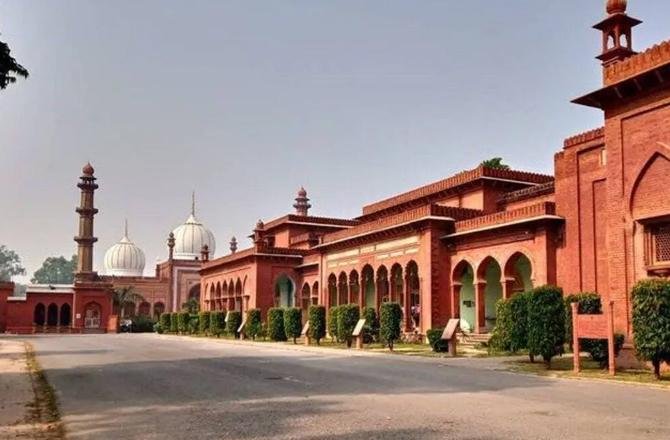AMU officials have been denying for the last three days claims that a system of reservation of seats for Muslims is being implemented in student admissions and employment of staff at the university
ALIGARH — The Aligarh Muslim University (AMU) has denied claims that it extends reservation on religious grounds to Muslim candidates in admissions and recruitment, asserting that it has no such system in place.
The university said this in a statement on Monday, days after the Supreme Court held that the legal question over the AMU’s minority status would be decided by a new bench and overruled a 1967 judgement that said the university cannot be considered a minority institution since it was created by a central law.
AMU officials have been denying for the last three days claims that a system of reservation of seats for Muslims is being implemented in student admissions and employment of staff at the university, reported PTI.
“The Aligarh Muslim University gives no reservation to Muslim candidates either in admissions in different courses offered by the university or in the recruitment, as has been reported by some media outlets, after the recent judgement of the seven-judge bench of the Supreme Court of India,” Prof Mohammad Asim Siddiqui of the AMU’s Public Relations Office said in the statement.
“AMU has an internal quota system for the students passing out from the schools run by the university. When these students seek admission in the university, they are considered internal and 50 per cent of seats are reserved for them regardless of their religion or faith, subject to eligibility requirements,” it said.
Siddiqui added, “Reports about reserving seats for Muslim candidates in AMU are false and misleading.”
While referring to the university’s minority status at a rally here on November 9, Uttar Pradesh Chief Minister Yogi Adityanath said the matter is being decided by the Supreme Court, but added, “Such an institution, which is nurtured by India’s resources and runs on public taxes, does not give reservation to the backwards, scheduled caste or tribal people, but is arranging 50 per cent reservation for Muslims.”
“The Constitution of India provides reservation to the people of backward castes based on the reports of Scheduled Castes-Tribes and Mandal Commission, but why is this facility not available in AMU,” he posed.
Adityanath also argued that when the country’s money is being invested in the university, people should get the benefit of reservation there too.
Last Friday, the Supreme Court deferred the question of AMU’s minority status to a new bench. In a majority verdict headed by the then Chief Justice of India (CJI) D Y Chandrachud, the bench laid down tests for considering the issue of AMU’s minority status.
The 4:3 majority judgement authored by Chandrachud said, “The view taken in Azeez Basha (1967 verdict) that an educational institution is not established by minority if it derives its legal character through a statute, is overruled.

